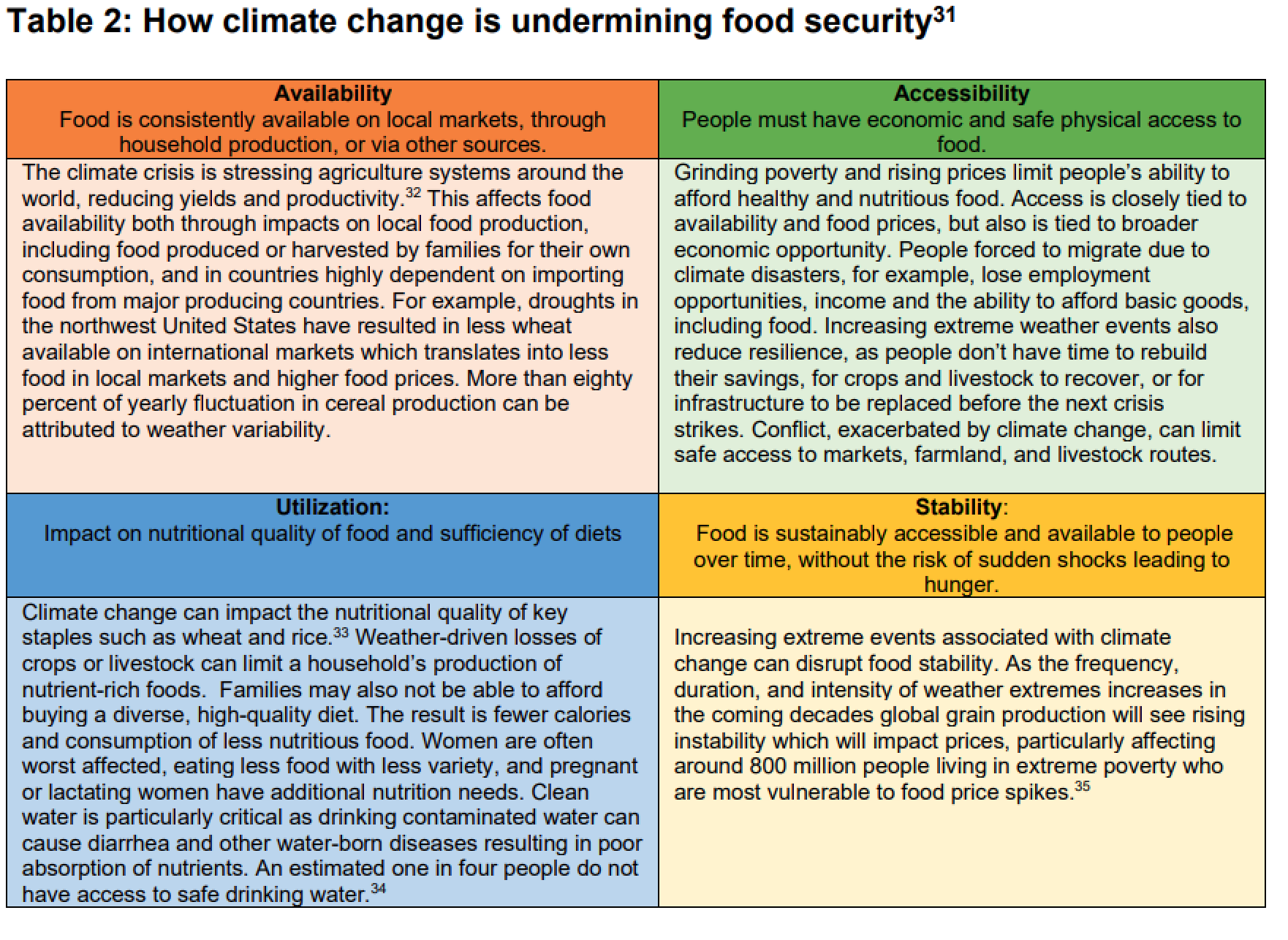One third of Pakistan has been flooded. Crops and topsoil washed away; farming infrastructure destroyed. On the other side of the Arabian Sea,Somalia is experiencing its worst drought for 40 years with crops failing and livestock dying. Our climate isn’t just changing, it has changed. Climate change is fuelling hunger for millions of people around the world. Extreme weather events have increased five-fold over the past 50 years, destroying homes, decimating livelihoods, fuelling conflict and displacement, and deepening inequality.
The causes of global hunger are deeply complex and conflict and economic disruptions, including those from COVID-19, remaining key drivers. However, these new and worsening weather extremes are increasingly peeling away the abilities of poor people particularly in low-income countries to stave off hunger and cope with next shock.
Oxfam has looked at 10 of the worst climate hotspots in the world which had the highest number of UN appeals related to major weather extremes since 2000: Afghanistan, Burkina Faso, Djibouti, Guatemala, Haiti, Kenya, Madagascar, Niger, Somalia and Zimbabwe. It found that acute hunger has more than doubled in those countries just over the past six years, from 21 million to 48 million people. Nearly 18 million people in these 10 countries are on the brink of starvation. The correlation between weather-related crises and rising hunger in these countries, and others, is stark and undeniable.
Collectively, these 10 climate hotspots are responsible for just 0.13% of global carbon emissions and each of them sits in the bottom third of countries that are least prepared to cope with climate change and its damages. The carbon emissions of the G20 countries – which together hold over 80% of the world’s economy - are 650 times higher than these ten.
Addressing the complex drivers of hunger along with underlying inequalities requires multiple collective measures to end the injustices that fuel the growing hunger crisis and to build more climate-resilient food systems that work for all people. This brief focuses on how climate change acts as a threat multiplier, worsening the existing risks and vulnerabilities to hunger for already disadvantaged people, particularly women, agricultural workers, and small-scale farmers. It explores major climatic events across seven regions where people are being worst affected: Asia’s typhoons, East Africa’s drought, South Africa’s cyclones, the Sahel’s drought, Latin America's dry corridor, the Pacific sea-level rise, and water scarcity in the Euphrates and Tigris River basins.
It argues that the failure to tackle the climate crisis is now perpetuating a system of reliance on a humanitarian aid system that was not designed nor resourced to respond to cyclical shocks of such scale and frequency. It warns that unless we tackle the underlying climate injustices, the situation will get much worse. As humanity faces this existential crisis, the biggest polluting companies continue to amass extraordinary wealth: the oil and gas industry has amassed around $2.8 billion per day in profits (or more than $1 trillion per year) for each of the last 50 years. Less than 18 days of those profits would cover the entire $48.82 billion UN humanitarian appeal for 2022.
At the UN General Assembly and ahead of COP27, Oxfam is calling for leaders to take urgent action to:
-
Provide lifesaving aid to address the immediate hunger crisis in these climate hotspots
-
Guarantee adequate climate and anticipatory financing to help impacted people adapt, prepare for and cope with the next disaster
-
Compensate countries most impacted for what they have already lost in the climate crisis
-
Reduce future climate impacts by submitting realistic climate plans that reduce emissions to limit warming under 1.5C

| Year of publication | |
| Publisher | OXFAM |
| Geographic coverage | NigerZimbabweSomaliaBurkina FasoDjiboutiAfghanistanMadagascarKenyaHaitiGuatemalaGlobal |
| Originally published | 16 Sep 2022 |
| Knowledge service | Metadata | Global Food and Nutrition Security | Climate extremes and food security | Extreme weather event |
| Digital Europa Thesaurus (DET) | hungerdroughtclimate changeVulnerable groupshumanitarian aidHotspotflood |
